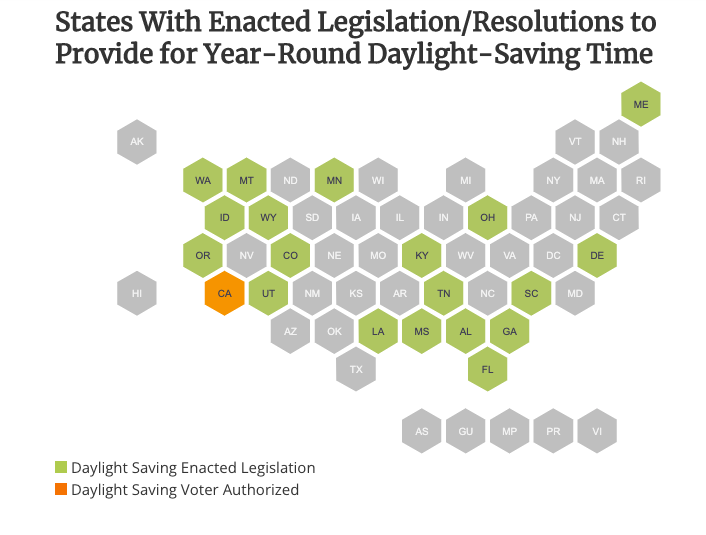The calendar page has flipped forward to November and the clocks are about to flip backwards. Potentially for the last time?
Videos by Outdoors
Daylight saving time officially comes to an end on Sunday, November 6, 2022. This is an unofficial reminder to set your clocks back an hour at 2 a.m. — or before you go to bed on Saturday evening.
It is also a reminder that the sun will set earlier in the afternoon and, of course, sunrise times will also change.
This year the change may, or may not, be permanent.
According to the NCSL.org, there have been over 450 legislative attempts to get rid of this clock changing pattern since 2015. The site states, “Much of the legislation would stop the disruption-causing, twice-yearly clock switching. Inherent in the debate is whether to enact either permanent standard time or permanent daylight time. The federal Uniform Time Act allows the former option but not the latter.”
The ‘Uniform Time Act’ has not passed. Neither has the ‘Sunshine Protection Act’ though it went through the U.S. Senate unanimously in March but has still not been put before the House of Representatives. With an election cycle coming, it is unlikely to do so anytime soon.
Florida Senator Marco Rubio said that he expected the bill to sit as outside considerations were weighed. Rubio was one of the bill’s sponsors, and told Reuters that nothing would come to fruition until November 2023 back in March.
“I know this is not the most important issue confronting America,” he said. “But it’s one of those issues where there’s a lot of agreement.
“If we can get this passed, we don’t have to do this stupidity anymore. Pardon the pun, but this is an idea whose time has come.”
NCSL has tracked that in the last five years, 19 states have enacted legislation — or passed resolutions — to move to year-round daylight saving time. Some were contingent on if Congress were to allow such a change. Some also had stipulations that would enact if surrounding states passed the same legislation.
Without federal legislation — which does not currently allow full-time DST — Congress would have to act before many of the states could officially adopt its proposed changes.
What states are already involved?
The site lists 19 states: Colorado (2022), Alabama, Georgia, Minnesota, Mississippi and Montana (2021). Idaho, Louisiana, Ohio (resolution), South Carolina, Utah and Wyoming (2020). Delaware, Maine, Oregon, Tennessee and Washington (2019). Florida (2018; California voters also authorized such a change that year, but legislative action is pending). Some states have commissioned studies on the topic including Massachusetts (2017) and Maine (2021).
Only two states — Arizona and Hawaii — observe permanent standard time. American Samoa, Guam, Puerto Rico, the Virgin Islands, and the Northern Mariana Islands are among U.S. territories that also do not move timezones.
No matter how long Congress lags behind, we will continue to lose about two minutes of sunlight per day for the next six weeks. The first day of Winter falls on Dec. 21, and it will be the shortest sunlight day of the year, with only 9 hours and 21 minutes to enjoy your time outdoors.










